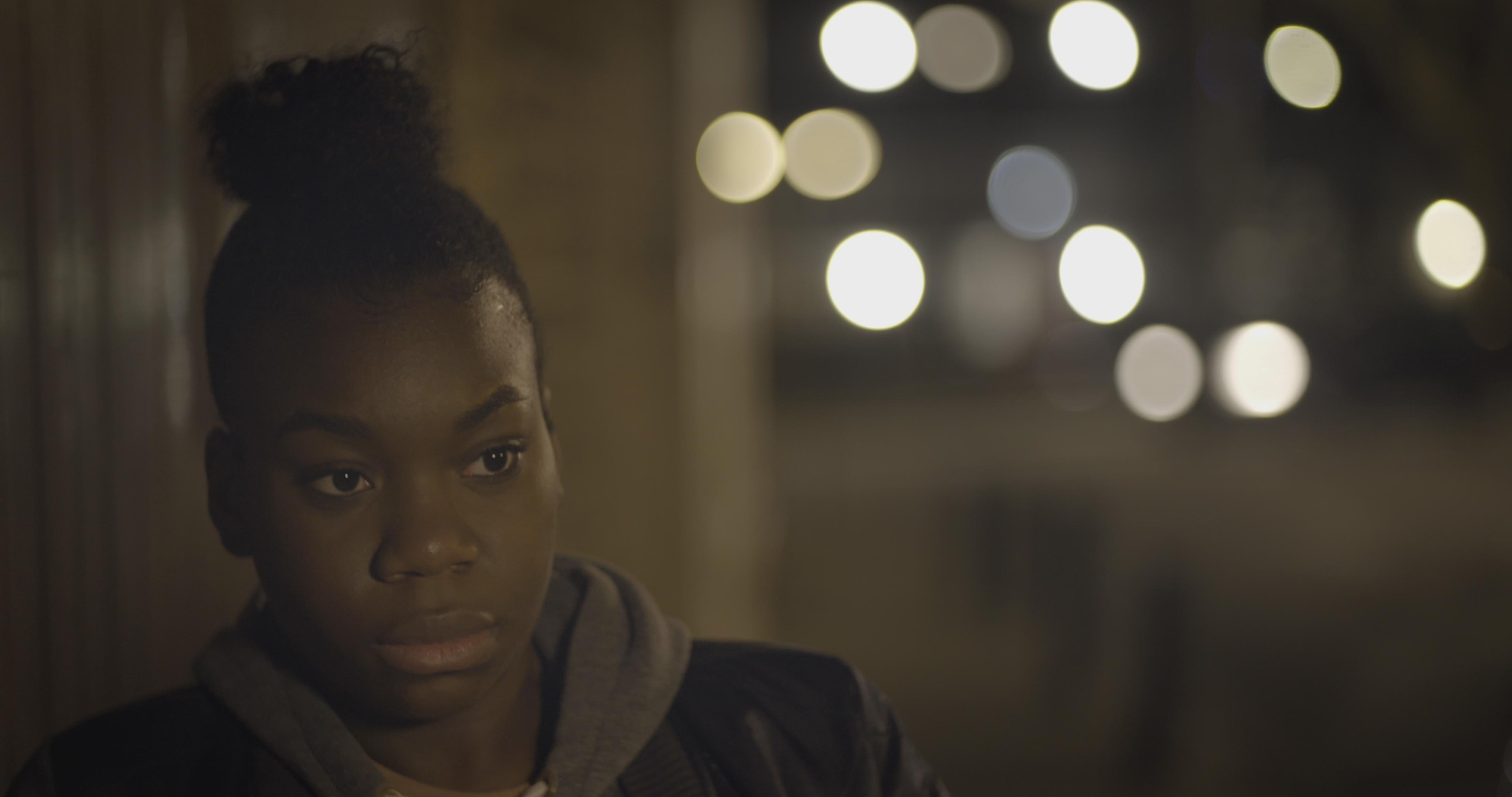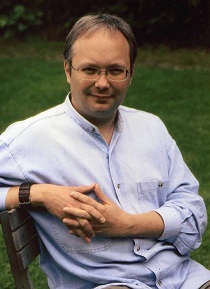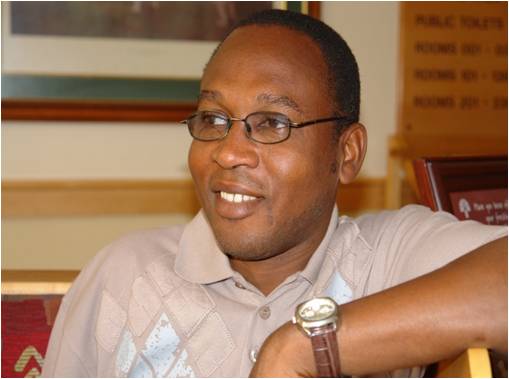ASK & DISCUSS
INDEXI'm tired
12 years, 2 months ago - Dan Selakovich
Multiple skills required. Just saw this today in the "employment" section:
Editor
this role will require some one who has edited film dramas before and will also need you to be a good colour grader.
Also a good colour grader? Really? Do you also need a great costume designer that's a good Script Supervisor? I understand the needs of no-budget, but damn. I'm reminded of the sign outside the auto mechanic that reads, "We Specialize in all makes and models." It seems you can't devote your life to one thing any longer. And this has become more and more common. The last job I applied for as editor asked me how good I was at "Color" on the FCP system. I mistakenly informed them that it was probably not a good idea to A) Not use Color to grade their feature, and B) Editors are not colorists. It's a completely different skill set.
Frankly, it would be more appropriate, if you're combining jobs, to ask your DoP applicants if they are adapt at color grading. That makes sense, right? We picture editors are probably more skilled at sound design. That's sort of something we consider when cutting, after all.
I remember when Avid just starting hitting the market. When I cut on film, producers showed great interest in my ability to edit. When Avid was taking over, producers asked me only one question: Which Avid do I own? As if the computer took over all the skill to edit a narrative film. It took about 5 years for the industry to right itself back to a skill set. But now you can't just be a great editor. You have to be a great title designer, colorist, and EFX person--just because they all came in the same box from Apple.
It takes years to become pretty decent at each of those film jobs. The software can be learned really quickly. The art takes time.
So I'd like to say to all of those producers out there: Software and Art are two different things. We craftspeople spend years learning one thing. And we're damned good at it. But you seem to prefer a kid just out of school because he/she knows a lot of software, to us old folk who've been doing one thing for decades.
Dan
Only members can post or respond to topics. LOGIN
Not a member of SP? JOIN or FIND OUT MORE
12 years, 2 months ago - Dan Selakovich
Everything you mention for a composer is in the same wheelhouse. At least it makes sense. In fact, a composer that also does sound design can be a great benefit to the film as a whole. Asking an editor to color grade is like asking a composer to pull focus. And color grading your feature on a mac laptop is kind of, well, stupid. Which is what producers are asking, not knowing what goes into a real color grading theatre at a proper lab or post house. Especially if you're dealing with 4 or 8k footage. And if you try to educate the producer to those realities, then yes, you probably won't get the job. We freelancers can rarely afford to keep up with the most current technology, much less have a proper stage to house that technology for a mix, VFX, or grading. You well know, that a film mixed in a large theatre is going to sound different than a film mixed in an editing room or a composer's garage. If you're going for a theatrical release, you simply must mix for a theatre, and that requires being in a theatre when you mix the damned thing.
In the end, those looking for multi-talented artists are looking to also not pay properly for those talents or equipment.
12 years, 2 months ago - Maria Ann Hylton MSc, MA.
I agree with you Dan. Each craft is different and it takes time to learn it thoroughly. I never would ask an editor to grade. I'd rather wait as long as it takes to save some cash and ask a grader/colorist who has experience, specialist in their field.
12 years, 2 months ago - Joe Wilkes
I wish there were more people with this attitude. I've been a designer for print for nearly 20 years now and it's a similar story. I'm frequently being asked if I can design a web site, app or provide an illustration. Well, no, not really, I'll leave that up to the people that know code or can actually draw without checking which end of the pencil to use. I'm damn good at my job, but it seems as though things have changed so far now, that there are now fewer and fewer opportunities out there. So if I'm to change career, I'm going to jump in and learn something I've always wanted to do, edit film. Though it now saddens me that I'm faced with the same problem. Just because you can shoot some footage on whatever is in your pocket, it doesn't mean you have the language to edit. And just because you can edit, does that make you the best choice for grading or editing sound? I'd happily point in the direction of those other skilled professionals, but in doing so, I'm saying no to work.
I was sat next to a fellow designer this week who was busy downloading Premier (after asking me what I use, without wanting to know why). I asked him if he could edit film, to which he responded, "can't be too hard can it, it's made by Adobe so I'm sure the tools will be the same." And naturally his managers will be very dissapointed when he can't work out why his sequence settings are always wrong. Or it's just cut badly. 'Jack of all trades and master of none' is a phrase that springs to mind. And Dan, I agree with you wholeheartedly, but I have to wonder sometimes if I'm not just shooting myself in the foot.
One of the Google bosses once said to me, "you've got to be fast or you're fucked". That sums it up really, it's all about immediacy, and getting the project out there with little cost or time invested. If we all do the work of 3 people, job done.
There's no real answer, but what I do know is that I've not been as creatively satisfied as when I made my first film last year, and if colour grading has become part of that, then so be it. I'll keep my head down and learn, as best as I can, hoping that the project doesn't suffer as a consequence. The bottom line is that I'd rather be working in film than not...
12 years, 2 months ago - Dan Selakovich
I understand your frustration, Joe. The new big thing in the design world is to have a "contest". A large corporation wants a new logo, so they found a way to get work for free: submit your ideas, and we'll pick one and pay you shit for it. When they should just hire a pro to begin with.
I guess my big complaint is the view that this shit is easy. I went to California Institute of the Arts, and was constantly complimented on my eye for color. Yet, I know what goes into being a colorist, and know there are better people than I. One of the best colorists I know was an apprentice for 7 years. 7 years! Do you really want your editor practicing on your movie?
12 years, 2 months ago - Kays Alatrakchi
There are two discussions going on here, one is about the ability of knowing software vs. actually knowing what to do with it, and the other one about being able to master multiple skills. You will get no argument from me on the former, but on the latter I really think we all need to realize that we're in the middle of massive changes in our industry, and one of them is the coalescence of various (related) skills. I've been a music composer for about 20 years. In the past a "music dept." would have a person that would write the music, one who would orchestrate it, one that would edit it, one that would mix it, and so on. Nowadays a composer is expected to do it all, and more. Some composers are even being expected to sound design, sound edit and mix a project. Same with editing, on an increasing number of projects, the editor is being asked to deal with at least the more minor compositing and VFX tasks, and even color grade. The unification of what were once multiple trades is inevitable as budgets and timelines keep shrinking. You don't have to like it, but at the very least you have to acknowledge that it is happening and at some point you might very well lose the work to someone who can come in and handle multiple tasks, and do it quite well.
12 years, 2 months ago - Dan Selakovich
Nope. Sorry Marlom. Those 2 jobs are at least in the same wheelhouse. ;)
12 years, 2 months ago - Dan Selakovich
I have to tell you, Jimmy, I do so miss my upright moviolas! Thanks for so beautifully defining our job. One thing I always have trouble with, is convincing directors that "knowledge of audiences" is an important aspect of editing.
12 years, 2 months ago - Dan Selakovich
An editor asked you to leave? Holy shit. I've found that when someone throws technical jargon around, it usually means they don't know how to do what you're asking them, even though it's possible. One of the best editors I ever knew went to college to be a diplomat. I learned so much about how to communicate with directors from him. I've often thought that should be a required course at every film school.
I've been in those film timing rooms--when it was film. And you're right, there is no "let's just try it" phrase. It was really expensive! The lab would usually give you three passes, after that you're paying. I've also supervised some telecine work; going from film to a VHS release. That common language is so important--"Those blacks look a little hot." "Good eye, coming down."
I have to say with my distain for digital, I do like digital timing. There is so much you can do. "Can you make those trees more green?" Why yes you can.
12 years, 2 months ago - Dan Selakovich
It really is, right? So I'm not nuts here. One of the reasons I love filmmaking so much is that you never quite master it. As Jimmy points out, you are always learning something with every picture. 99 percent of my career was/is working uncredited saving shit in trouble. And what is definitely more common now, are directors who don't know the basics. Most common is what I call "Dragnet Editing." If a character has something to say, you cut to them. Not a frame of over-lapping dialogue, and it just goes downhill from there. Probably because digital everything has made films so cheap to make. But software is not a replacement for knowledge. When I was learning Avid, there were only 2 professional editors (myself included) out of a class of 12. Everyone else thought they could become editors if they just knew the equipment.
12 years, 2 months ago - Dan Selakovich
So true, Ned. But why is it that these multiple roles are mostly in post production? As I pointed out originally, you wouldn't ask your costume designer to be your script supervisor as well.
Sometime in the last couple of years, I was asked to edit a feature for the lifetime channel. They wanted to pay me a weekly rate equal to what I earned in 1986. AND they wanted the cut done--completely, ready to air--a week after principle photography wrapped. That's insane. Yes, digital has allowed us to cut faster, but there is some thinking time involved! Did writers have their time cut from the studios when word processing came out? No. Was it cut more when Final Draft made it faster still? No.
I really wish producers would take the time to learn post. I've been at this a long time now, and only had one producer that knew what it took to edit, time, mix, etc. ONE!
I turned down that Lifetime movie not only for the obvious reasons, but because principle was only 18 days that included 13 company moves. On a schedule that short, you'll be working people long hours, and coverage is going to abysmal. So lots of mistakes will be coming into post. Mistakes that take time to fix. I can edit much faster when the shooting ratio is 10:1 over the much less footage of 4:1.
I'm sure there are people out there that can do both editing and color grading, such as you, Ned. I just personally haven't seen it. The best timing from an editor I've seen was fine. Just fine. I want great. There was a study a few years ago where the researcher came to the conclusion that you need 10,000 hours to become a top expert at something. That's a full time job for 5 years. If it were my film, I'd be taking it to a timer that does it day in and day out. In fact, I have a short sitting on the shelf until I can afford to do just that. And let's face it, shorts aren't that important. But after all of the work I've gone through so far, why have it average, at best, when it comes to the mix or timing?
12 years, 2 months ago - Nicholas Hughes
...and then there's the whole teal and orange colour grading debate! Anyway, I'd much rather hire an editor who knows how to cut a scene to the artistic and script requirements than someone who knows how to twiddle the settings.
12 years, 2 months ago - Tomasz Kowalski
Editing is not about software and newer will be. You really don't need much Avid, FCP skill for offline editing. You can always get an assistant that will be a master software mind and will fix all you're mistakes. But you will newer be able to edit movie without storytelling skills. People that write no budget adds for editors have no idea how much they can get from talented editor. And Im not saying that I wouldn't help with interesting no-budget production. But its becoming a rule. You have no budget-no problem, you will find someone-NO! Thats the last stage of you're production. This is a moment that you're movie can get deep emotions, real characters or be flat and boring as a soap opera. Dear Directors, good editor will edit you're movie without you! He can tell you straight away where are mistakes, scenes that are slowing down, narration problems etc, etc... Especially unexperienced directors. Go for experienced editor. They had in their hand really many stories, managed many problems. You're gonna learn a lot!!!! Not for free, but for shure its a good investment.
12 years, 2 months ago - Marlom Tander
Is this where a writer is allowed to bellyache about Writer/Directors who would be far better off being Directors :-)
12 years, 2 months ago - Jimmy Edmonds
Totally, totally agree Dan. Editing is about story telling, whether you do it with splicing tape and a pair of scissors or on a keyboard. You may or may not be good at story telling (and after 25 years I'm still learning) but that is what editing is about. Going back some years, I was never asked how well I could operate a Steenbeck or a Pic-sync, but I have been applauded for a number of other skills including, communicating ideas, narrative and dramatic structuring, montage and juxtaposition, diplomacy, sense of humour, calm under pressure, curiosity, sense of pace and texture, knowledge of audiences, knowing when to lead and when to follow .... etc etc. Editors are like midwives - its not our baby but we are there to help it get born - and it ain't our job to determine the colour of the new infant. (hmmm .. I just fell into that one ..?!?)
12 years, 2 months ago - Daniel Cormack
I've had some pretty appalling experiences with one-stop-shop Apple-specializing post-production houses.
And yes, I did end up with a student who knew all the software, but virtually nothing about the creative side of colour grading or, more importantly, about creative relationships.
He seemed intent on talking in technical jargon and was totally unresponsive to the visual stimulus I brought in, simply referring back to the technical jargon. (I thought it was just me, but then I went to a seminar with the guy who graded LOTR and he basically said it's about establishing a common language and Peter Jackson had his only little idiosyncratic phrases for 'crunching the blacks' and so on).
I pulled the plug on it when the student asked me to leave the room so he could 'get on with it'.
It's an interesting field, though, as digital grading only really started around the turn of the century and prior to that you'd be working with basically balancing three colours in the optical print colour grade. And every pass meant more costs, so it inspired a bit of discipline and focussed thought.
12 years, 2 months ago - Peter Ward
Ha ha! It's like hiring a writer based on how well they know Office.
12 years, 2 months ago - Dan Selakovich
HA! That's what I'm doing right now, Maria. I've had a short sitting on the shelf until I get enough cash to mix it in a real theatre, and color time it from a real professional. I broke my cardinal rule: don't start a film until you have enough money to finish it! Oh well.
12 years, 2 months ago - Henry Abisayo
Good to finally know I'm not the only one who feel this way. Peter Ward said it all 'It is like hiring a writer based on their knowledge of Microsoft Word!' Part of the problem are these skill trainers who pass good knowledge of software for Video Editing Skill and advertise their training program as such. They've successfully conditioned the mind of new generation producers and directors that editing is all about software.
12 years, 2 months ago - Ned Hussain
I believe i can Edit and color, amongst other roles. So i don't see a problem in looking for crew with multiple skills.
Of course they actually have to be good at it. Both creatively (hell no to teal & orange) and technically.
I think it's pretty rare to find people like that as someone above said, it takes years to perfect or even learn such skills.
However what pisses me off is when producers/directors take advantage of the situation. For example, i'm editing and later grading, the producer/director expect it to be all done magically in one go. NO! Those are two separate jobs. If editing will be two weeks that doesn't mean the grading is included, that's a whole new task. These things take time. Just because you hired one person to do two jobs doesn't mean it will somehow be done as fast as Superman flying around the goddamn globe.
Also are you taking the piss when you ask people to take on multiple roles and not pay them anything AND ask for each job to be done quickly & efficiently and up to high standards.
Producers/Directors out there ask for too much, and expect others to magically transform their projects. They need to dial it down, if not, then expect to have a shitty job done. Because the people that CAN do multiple jobs are too busy using their skills on worthwhile projects.
End of rant.
p.s i haven't read what i typed, i just raged out, so excuse me for any spelling/grammar errors.








